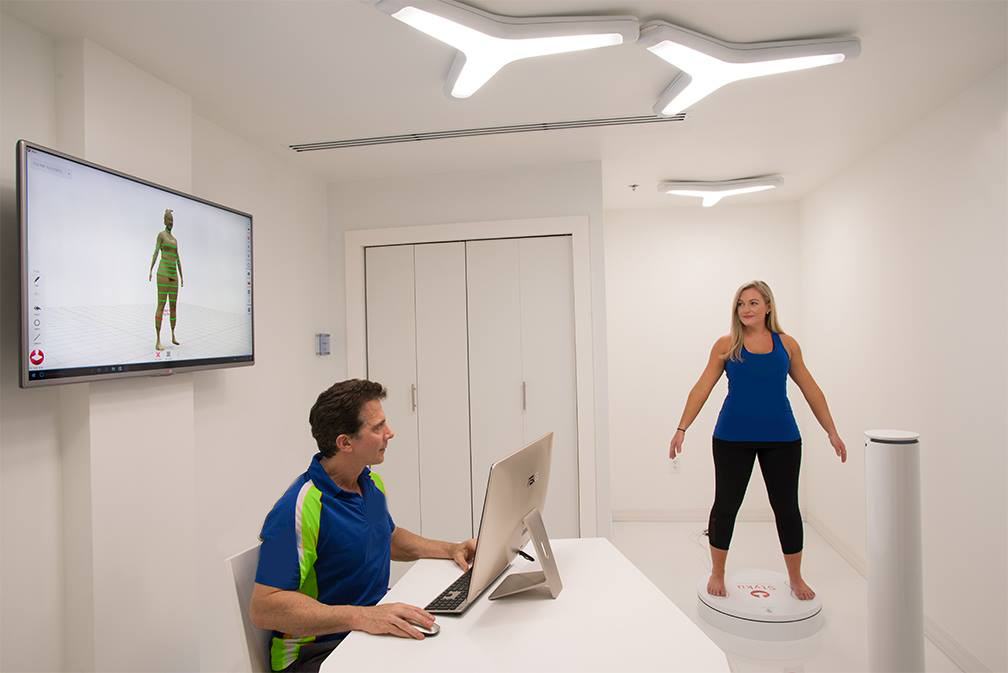Ozempic is becoming increasingly popular as a medication for managing diabetes and aiding in weight loss. As with any medication, understanding how Ozempic interacts with daily habits, such as coffee consumption, is essential for achieving optimal health outcomes. This article will explore the uses and effects of Ozempic, its relationship with coffee, and the necessary precautions you should take.
Understanding Ozempic: Its Uses and Effects
Ozempic is a prescription medication containing the active ingredient semaglutide. It is primarily used to treat type 2 diabetes by helping to lower blood sugar levels. Ozempic mimics the glucagon-like peptide-1 (GLP-1), a hormone that plays a critical role in regulating insulin secretion in response to food intake. This innovative approach to diabetes management not only targets blood sugar levels but also addresses some of the underlying challenges faced by individuals with this condition
This medication is administered via a once-weekly injection, making it a convenient option for individuals with busy lifestyles. Besides aiding in blood sugar control, Ozempic has also been shown to assist with weight loss, providing dual benefits for those managing diabetes. The ease of use associated with a weekly injection can significantly improve adherence to treatment plans, allowing patients to focus on other aspects of their health and well-being.
The Role of Ozempic in Diabetes Management
Diabetes management often requires a multifaceted approach that includes diet, exercise, and medications. Ozempic works by enhancing the body’s ability to release insulin when blood sugar levels are elevated. In addition to its glucose-lowering effects, it also slows gastric emptying and reduces appetite. This multifactorial mechanism of action not only helps in maintaining stable blood sugar levels but also encourages healthier eating habits, as patients may feel less inclined to overeat.
Clinical studies have demonstrated that patients using Ozempic often experience significant reductions in HbA1c levels, a key indicator of long-term blood glucose control. The addition of this medication to a comprehensive diabetes management plan can lead to improved overall health. Furthermore, many patients report an increase in energy levels and a greater sense of well-being, which can positively influence their ability to engage in physical activity and maintain a balanced lifestyle.
Potential Side Effects of Ozempic
Like any medication, Ozempic may cause side effects, although not everyone experiences them. Common side effects include nausea, vomiting, diarrhea, and abdominal pain. These symptoms are often mild and tend to diminish over time as the body adjusts to the medication. It is important for patients to communicate openly with their healthcare providers about any side effects they encounter, as this can help in managing symptoms effectively.
More serious but less common side effects can include pancreatitis and kidney problems. It is crucial for individuals taking Ozempic to be aware of these risks and to contact their healthcare provider if they experience severe symptoms, such as persistent abdominal pain or any signs of a serious allergic reaction. Additionally, ongoing monitoring of kidney function is recommended for patients on Ozempic, especially those with pre-existing kidney issues, to ensure the medication is well-tolerated and to mitigate any potential complications. This proactive approach can help maintain the overall health and safety of individuals using this medication.
The Relationship Between Ozempic and Coffee
Coffee is one of the most consumed beverages globally and is often a part of many individuals’ daily routines. Given that both Ozempic and coffee can influence metabolic processes, understanding their interaction is essential for optimal health management.

How Coffee May Interact with Ozempic
Caffeine, a primary component of coffee, can affect various physiological processes in the body, including metabolism and digestion. While some studies suggest that caffeine may enhance insulin sensitivity, the overall effect of coffee on Ozempic’s efficacy is not entirely understood.
It’s important to consider that coffee can stimulate gastric motility, which might influence the absorption of Ozempic. Consequently, drinking coffee too soon after administering the medication may potentially impact its effectiveness. Therefore, timing and moderation in coffee consumption are vital.
Moreover, the type of coffee consumed can also play a role in this interaction. For instance, espresso and dark roast coffees tend to have higher caffeine concentrations compared to lighter brews. Individuals may want to experiment with different types of coffee to determine how their bodies react, especially in conjunction with their Ozempic regimen. Additionally, the presence of additives such as sugar or cream could further alter the metabolic response, making it essential to consider not just the coffee itself but also what accompanies it.
The Impact of Caffeine on Ozempic’s Effectiveness
Caffeine can have both stimulating and inhibitory effects on the gastrointestinal system. For some individuals on Ozempic, increased caffeine intake could lead to gastrointestinal discomfort or exacerbate existing side effects. A heightened sensitivity to caffeine could also result in jitters or anxiety, which may interfere with overall wellbeing.
Additionally, caffeine may influence hormonal responses in the body. While research is ongoing, it is essential for individuals taking Ozempic to monitor how they feel with varying amounts of caffeine and adjust their intake accordingly. It is also worth noting that the diuretic properties of caffeine can lead to increased fluid loss, which may affect hydration levels. Proper hydration is crucial for those managing diabetes, as it can impact blood sugar levels and overall health. Therefore, balancing coffee consumption with adequate water intake is essential to maintain optimal hydration and support the body’s metabolic functions.
Precautions to Take When Combining Ozempic and Coffee
Combining Ozempic with coffee requires mindful consideration of timing and quantity. Individuals should aim to understand their bodies and how they react to both the medication and coffee.
Timing Your Coffee Intake with Ozempic
One recommended practice is to wait for a specific period after taking Ozempic before consuming coffee. Allowing some time for absorption can help maximize the medication’s effectiveness. A common suggestion is to wait at least 30 minutes to an hour after administration before indulging in coffee.
Alternatively, you might consider having coffee earlier in the day and taking Ozempic later. Finding a suitable routine that works for your schedule can help mitigate any potential adverse interactions. Additionally, it is essential to be aware that caffeine can influence your metabolism and may lead to fluctuations in blood sugar levels. Therefore, monitoring your body’s response to this combination is crucial, especially in the initial stages of treatment.
Adjusting Dosages for Optimal Results
Patients must work closely with their healthcare providers to determine the appropriate dosage of Ozempic. If coffee consumption impacts how you feel while taking the medication, discussing adjustments with a provider may help optimize results without compromising health.
For some individuals, it may require a resistant approach where they monitor blood sugar responses after consuming coffee alongside Ozempic. Keeping a log of how your body reacts can provide valuable insights to share during medical consultations. In addition to dosage adjustments, consider the type of coffee you consume; for instance, specialty coffee drinks with added sugars or creamers can significantly alter your blood sugar levels. Opting for black coffee or lower-calorie alternatives may be a more suitable choice for those looking to maintain stable glucose levels while enjoying their morning brew.
Consultation with Healthcare Professionals
Engaging in regular conversation with healthcare providers is vital for anyone on Ozempic, especially concerning habitual changes like increased coffee consumption. Transparency about dietary habits can significantly enhance the effectiveness of treatment plans. Regular check-ins can also help in monitoring how lifestyle changes, including diet and exercise, interact with your medication, ensuring that you remain on the right path toward your health goals.
When to Seek Medical Advice
It is essential to contact a healthcare professional if you experience unusual symptoms after consuming coffee while on Ozempic. Symptoms like severe gastrointestinal distress, significant changes in appetite, or swings in blood sugar levels warrant a prompt discussion with your doctor. These symptoms can sometimes indicate that your body is reacting negatively to the combination of Ozempic and caffeine, which may require adjustments to your medication or diet.
Additionally, if you find yourself consistently feeling unwell after combining these substances, a reevaluation of your treatment plan may be in order. Keeping an open line of communication with healthcare providers helps tailor personalized care and leads to better health outcomes. It is also beneficial to keep a food diary or log of your symptoms, as this can provide valuable insights to your healthcare team and help them make informed decisions about your treatment.
Communicating Your Dietary Habits to Your Doctor
Understanding the role that diet and lifestyle choices play in managing diabetes is critical. When meeting with healthcare professionals, be sure to mention your coffee consumption habits. Whether you are a casual drinker or a dedicated coffee enthusiast, divulging this information aids in crafting a comprehensive diabetes management plan. Your doctor may provide specific recommendations regarding the timing and quantity of coffee consumption to minimize any potential negative interactions with Ozempic.
Aside from coffee, discussing other dietary factors and any supplements or additional medications can provide a clearer picture of what might affect your Ozempic treatment. This transparency fosters a collaborative approach to enhanced health and wellbeing. Moreover, exploring alternatives to coffee, such as herbal teas or decaffeinated options, can be beneficial for those who might need to limit caffeine intake. Engaging in discussions about meal planning, carbohydrate counting, and the timing of food intake can further empower you to manage your diabetes effectively, ensuring that you are not only informed but also actively participating in your health journey.
Conclusion
Combining Ozempic with coffee can pose unique challenges, but understanding the relationship between the two can lead to better management of diabetes and overall health. By being mindful of timing, potential interactions, and maintaining an open dialogue with healthcare providers, individuals can navigate these aspects safely and effectively. Remember that your health journey is individual, and tailoring it to your needs is vital for long-term success.






